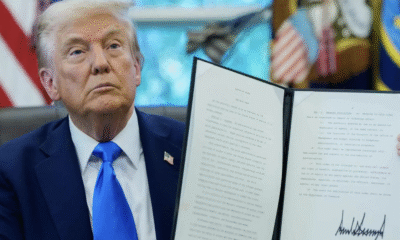UK opens study of Intra-Company Transfer visas used by many Indian firms
The UK Home Office has commissioned a study of its Intra-Company Transfer (ICT) visa route, used by several Indian companies who transfer employees on work visas to Britain. The Home Office released a letter on Wednesday by Home Secretary Priti Patel to the Migration Advisory Committee (MAC), an independent public body which advises the government on visa and immigration issues, setting up a year-long review into the salary and skills threshold applied to the visa. The minister said that the eventual goal is for the ICT route to sit alongside a new skilled worker route under the new points-based system, which comes into force on January 1, 2021, at the end of the Brexit transition period.
It is our intention that the ICT route should sit alongside the new skilled worker route in the new points-based immigration system that we are launching in January and that the terms of the ICT route should, initially, be the same as now, notes Patel, in her letter to MAC Chair Professor Brian Bell. However, it is several years since the MAC last looked at the ICT route and I would be grateful if you could consider the operation and effectiveness of that route, she notes. The MAC’s advice has been sought on the salary threshold for entry to the ICT route; what elements, if any, beyond base salary should count towards meeting the salary requirement; whether, as now, different arrangements should apply to the very highly paid; what the skills threshold for the route should be; and the conditions of the route, in particular those where it differs from the main Tier 2 (General)/Skilled Worker route.
The ICT category falls within a wider Tier 2 skilled work visa category and according to latest Home Office statistics, Indian nationals account for almost half (48 per cent) of all Tier 2 visas granted in the year ending June 2020. The US, Philippines, Nigeria and Australia are some of the other countries that rank high in the skilled work visa figures. The Confederation of Indian Industry (CII) has often raised the issue of a high cost burden of ICT visas faced by Indian companies, as a result of the minimum salary threshold requirement combined with a Skills and Immigration Health Surcharge imposed on such visas. It has therefore been pushing for a Social Security Agreement between the UK and India to provide return on benefits towards the annual contribution of Indian firms to the British economy.
Overall, the new points-based system has been welcomed by Indian industry, with the hope that some of these issues will be resolved. Alongside ICTs, the Home Office said it is seeking to expand its “mobility offer” to enable overseas businesses to send teams of workers to establish a branch/subsidiary, currently limited to only a single worker, or to undertake a secondment in relation to a high-value contract for goods or services. We would be grateful for the MAC’s advice on where we should set any criteria on the eligibility of workers (e.g. skill and salary thresholds) and the sending organisations (e.g. size of company, value of investment or contract, potential job creation etc), Patel’s letter notes. In his response, Professor Bell sought Home Office administrative records to proceed with its study and report back by the deadline of October 2021.
As part of this commission we expect to undertake our usual Call for Evidence and also run engagement events with key stakeholders. However, given the nature of ICTs, where we believe most of the usage is by a limited number of companies, this may take a slightly different format to our usual approach, said Bell. In addition to any public evidence we will also undertake our usual data analysis and modelling, as necessary, he said.








































